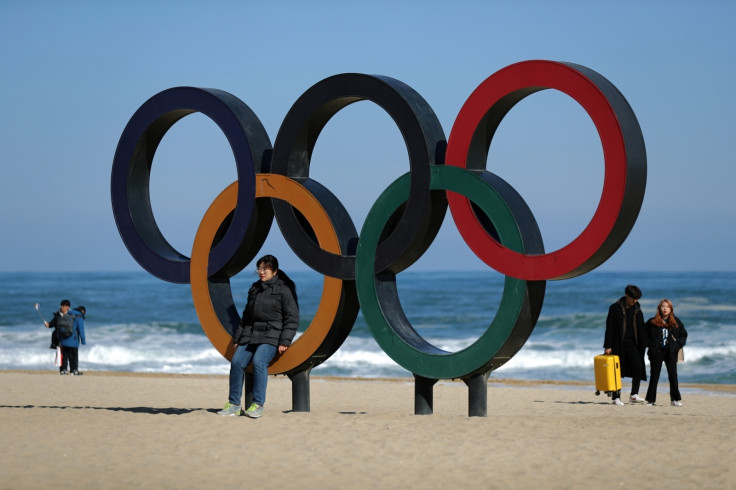North Korean Olympians may not get their Samsung Galaxy 8 phone like everyone else
Tricky balance of sanctions and Olympic ideal of equality face organisers.
Here is an Olympian question that the Pyeongchang Winter Olympics organiser is wrestling with: to give or not to give the Samsung Galaxy phone to the 22 North Korean athletes taking part.
Olympics partner Samsung Electronics has donated 4,000 Galaxy Note 8 phones to athletes and officials at the International Olympic Committee (IOC) so that they can document every moment and share their memories with the world.
But the Winter Olympic Games organiser is in limbo: giving the $1,000 (£717) device to North Koreans would violate global sanctions designed to punish their government's nuclear ambitions. But according to the Olympics' own rules, all athletes must be treated equally.
It is also unclear if the phones would work on networks inside North Korea.
The Galaxy Note 8 Olympic Games phone distributed to athletes is a limited edition and not for sale but Samsung's Note series phones are some of the most expensive available in the market.
The United Nations sanctions ban supplying or transferring luxury items to North Korea or to North Korean nationals.
The IOC has advised the organiser that North Korean athletes can use the phone during the Olympics that open on Friday (9 February) but must return them before their departure. Even after the IOC's suggestion, the Pyeongchang Organising Committee is still unsure what to do.
"Somebody should make a clear call but there is no one who can," said Sung Baik-yoo, the committee's spokesman. "So we have not given the phone [to North Koreans] and we cannot give the phone until we confirm this is not a violation of the UN sanctions."
The committee also has to take into consideration that all athletes are to be treated equally regardless of nationality, Sung said.
Other Olympians will receive the phone upon their arrival at the Olympic Village.

The gift is one of the sticking points South Korea is dealing with as it conducts a careful dance of welcoming North Koreans for the Olympics to send a message of peace while trying to avoid causing any frictions with its allies worried about the North's nuclear weapons.
In order to accommodate North Korean performance artists arriving by sea, the Seoul government waived its own sanctions.
It said the move was inevitable to ensure a successful Winter Olympics but critics accused it of sending the wrong message to North Korea and the international community, which has been stepping up financial and maritime sanctions against the North in recent months.
On Wednesday (6 February) Seoul's Unification Ministry said it was considering North Korea's request to provide fuel to the ferry that transported more than 100 artists for performances at the Olympics.
Spokesman Baik Tae-hyun said the government would discuss this potentially sanctions-busting move with the US and other countries.



















